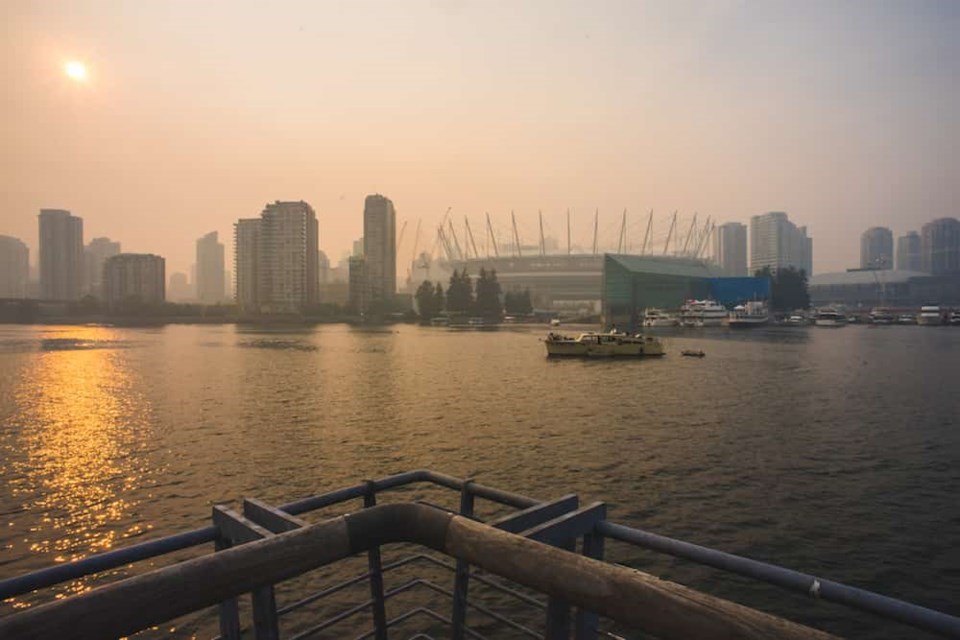After experiencing sweltering heat, several hazy days, and an electrifying thunderstorm, Metro Vancouverites may finally see a break from intense weather.
Bobby Sekhon, a meteorologist with Environment Canada, says no significant weather events are expected over the next couple of weeks. Instead, locals will likely enjoy a stretch of mild and sunny weather until next week when a "slightly cooler" trough of air brings some moisture into the region on Monday, Sept. 11, or Tuesday, Sept. 12.
Downtown Vancouver, for example, is expected to see a maximum daily temperature of 23 C with a low of 16 C on Tuesday, Sept. 5, according to V.I.A's Downtown Centre Weatherhood station. Only a short drive away, the Mount Pleasant area is expected to see a high of 21 C and a low of 14 C, while Hastings Sunrise will likely see an even cooler high of 19 C and a low of 14 C.
Heading into the rest of the week, temperatures are expected to cool off a couple of degrees in the region on Wednesday and then climb up again on Thursday.
Not only are no major heat or rain events expected in the coming days, but the air quality is expected to remain fairly stable, Sekhon explained, noting that the region likely won't receive "a whole lot of wind from the interior."
But smoke coming up from the wildfires raging south of the border could be the "wildcard" for local air quality.
In September 2020, Metro Vancouver experienced a long stretch of very poor air quality due to the wildfires burning in Washington.
Metro Vancouver weather forecast for fall
According to Environment Canada's seasonal forecast for meteorological fall, which commences on Sept. 1 and runs through the end of November, Vancouver has a 70 per cent chance of seeing above-normal temperatures for the season.
How much hotter could temperatures get this season?
Having "above-average temperatures" refers to the overall trend of temperatures throughout the fall season, rather than highs on specific days. In other words, there may not be several days with soaring temperatures but a generally warmer trend overall, Sekhon explained.
There is also a "medium skill score" for this year's fall outlook, meaning that there isn't a great deal of certainty about what will happen. That said, there is more confidence that September will be warmer overall since forecasts tend to be less reliable further out.
Warmer-than-usual waters in the Northeast Pacific can also "have a warming influence on coastal weather" and that may be impacting local temperatures, Sekhon added.
Once the fall season wraps up, above-average temperatures may commence just after Christmas when El Niño begins to impact the region.



